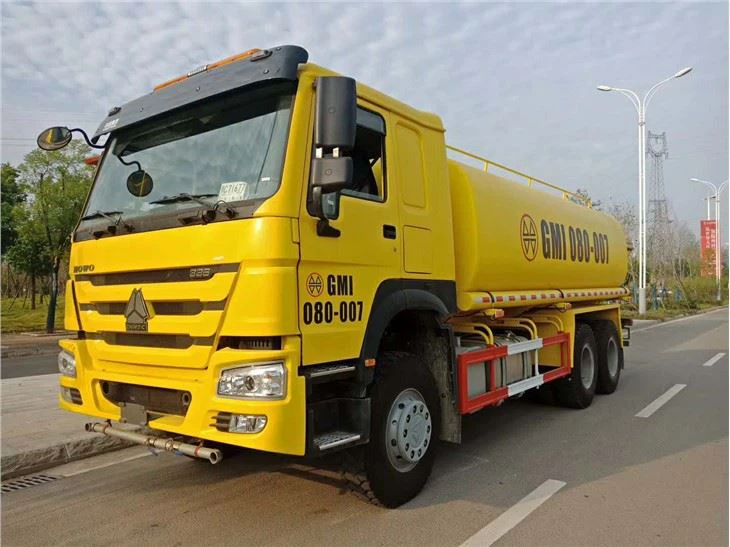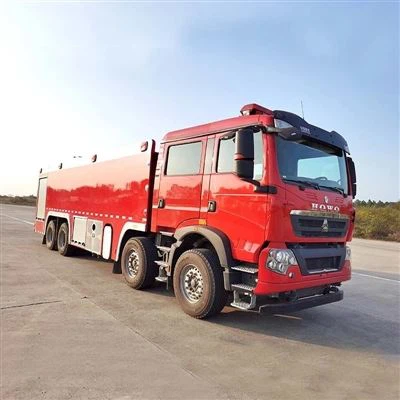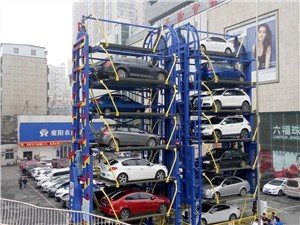Understanding Waste Disposal Lorries: A Complete Guide

Introduction
Waste disposal lorries play a crucial role in ensuring effective waste management in urban and rural settings. These specialized vehicles are designed to collect, transport, and dispose of various types of waste, including residential, commercial, and industrial refuse. In this comprehensive guide, we will delve into the workings of waste disposal lorries, their types, functions, and the importance of proper waste management in our communities.
What is a Waste Disposal Lorry?
A waste disposal lorry, often referred to as a garbage truck or refuse collection vehicle, is specifically engineered to collect and transport waste material to designated disposal sites such as landfills or recycling centers. These vehicles come equipped with various features that facilitate the efficient handling of waste.
Types of Waste Disposal Lorries
1. Rear Loader Lorries
Rear loader lorries are the most common type of waste disposal vehicles. They feature an opening at the back for easy loading of waste. The compacting mechanism allows the lorry to store a larger quantity of waste, making it a popular choice for residential areas.
2. Side Loader Lorries
Side loader lorries are designed with their loading mechanism on the side. This allows for a more efficient collecting process, especially in narrow streets or areas with limited access. They can be operated by the driver or remotely, which enhances safety.
3. Front Loader Lorries
Used primarily for commercial waste collection, front loader lorries feature large forks that lift containers and bins from the front. They are ideal for large-scale waste management, especially in industrial settings.
4. Compaction Lorries
Compaction lorries have specialized mechanisms that compress waste to maximize space. This feature is vital for urban areas where space is limited, and it optimizes fuel efficiency by reducing the number of trips required.
5. Vacuum Lorries
Vacuum lorries are designed for liquid waste disposal. They use suction to collect waste from various locations, making them valuable in cleaning up spills or managing sewage systems.
Components of a Waste Disposal Lorry
1. Chassis
The chassis serves as the vehicle’s framework, supporting its weight and housing critical components like the engine and transmission.
2. Compaction Mechanism
This essential feature compresses waste to increase storage capacity. It plays a critical role in optimizing the number of loads a lorry can carry.
3. Loading Mechanism
Depending on the type, the loading mechanism can be at the rear, side, or front. This varies significantly based on operational requirements and vehicle design.
4. Storage Compartment
The storage compartment holds the collected waste. Its size and design can vary based on the lorry type and intended use.
5. Hydraulic System
The hydraulic system powers the compaction mechanism and loading apparatus, enabling efficient operation across different waste types.

Importance of Waste Disposal Lorries in Waste Management
Waste disposal lorries are vital for several reasons:
- Environmental Protection: Proper waste collection reduces pollution and protects natural resources.
- Public Health: Timely waste collection prevents the buildup of refuse, reducing the risk of disease transmission.
- Resource Recovery: They facilitate recycling efforts by transporting recyclable materials to appropriate facilities.
- Community Cleanliness: Regular waste disposal helps maintain aesthetically pleasing and clean living environments.
Practical Tips for Efficient Waste Management

1. Schedule Regular Waste Collection
Ensure that your community has a reliable waste collection schedule. Consistency prevents overflow and unsightliness.
2. Separate Recyclables
Educate residents on separating recyclables to minimize contamination, which enhances the efficiency of recycling programs.
3. Promote Composting
Encourage composting organic waste to reduce the volume of waste sent to landfills.
4. Report Issues Promptly
If any issues arise with waste collection, such as missed pickups, ensure they are reported to local authorities quickly for resolution.

Case Studies: Effective Waste Management Practices Using Lorries
Case Study 1: Eco-Friendly Initiatives in San Francisco
San Francisco has implemented one of the most successful waste management systems in the U.S. The city utilizes front loader lorries for commercial waste, and side loader lorries for residential areas. Their rigorous recycling and composting programs have led to a significant reduction in landfill waste.
Case Study 2: Waste Collection in Tokyo
Tokyo employs a fleet of specialized lorries that efficiently navigate narrow streets to ensure that even the most congested areas are serviced. They have integrated technology to track waste volumes and optimize collection routes.
Technological Advancements in Waste Disposal Lorries
1. Smart Waste Collection Systems
Modern waste disposal lorries are increasingly equipped with smart technology that utilizes sensors to monitor waste levels in bins, allowing for optimized collection routes.
2. Electric Waste Lorries
With sustainability at the forefront, many cities are investing in electric waste disposal lorries to reduce carbon emissions and dependency on fossil fuels.
3. GPS Tracking and Route Optimization
Advanced GPS systems help in planning the most efficient routes, reducing travel time and costs associated with fuel.
Challenges in Waste Disposal Management
1. Public Awareness and Engagement
Lack of public awareness can hinder effective waste disposal practices. Continuous education and community involvement are necessary to change habits.
2. Funding and Resource Allocation
Many municipalities struggle with limited budgets, making it difficult to maintain an adequate fleet of waste disposal lorries and personnel.
3. Infrastructure Limitations
Adequate infrastructure is essential for successful waste management. In some areas, roads are not suitable for heavy vehicles, posing challenges in service delivery.
Future Trends in Waste Disposal Lorries
1. Increased Automation
As technology continues to advance, waste disposal lorries are expected to adopt more automated systems, improving efficiency and safety.
2. Integration of AI
The use of artificial intelligence in waste management systems will allow for better forecasting of waste generation patterns and optimized collection strategies.
3. Eco-Friendly Designs
Future lorries will likely feature designs that minimize environmental impact, such as materials that are recyclable or constructed for better fuel efficiency.
Frequently Asked Questions (FAQs)
1. How often should waste disposal lorries collect waste?
Collection frequencies vary by location and type of waste but generally occur weekly in residential areas and daily in commercial settings.
2. What happens to the waste once it is collected?
After collection, waste is taken to landfills or recycling centers, where it is sorted, processed, or disposed of in an environmentally friendly manner.
3. Are there specific regulations for waste disposal lorries?
Yes, regulations vary by region, including emissions standards, operational guidelines, and safety requirements for waste disposal vehicles.
4. Can anyone operate a waste disposal lorry?
Operating a waste disposal lorry typically requires a commercial driver’s license and specific training to ensure safety and compliance with regulations.
5. How are waste disposal lorries maintained?
Regular maintenance includes inspections, oil changes, and repairs as needed to ensure optimal performance and compliance with safety standards.
6. What are the costs associated with waste disposal lorries?
The costs can vary based on the lorry’s type, size, features, and maintenance. Municipalities often factor these expenses into their waste management budgets.
